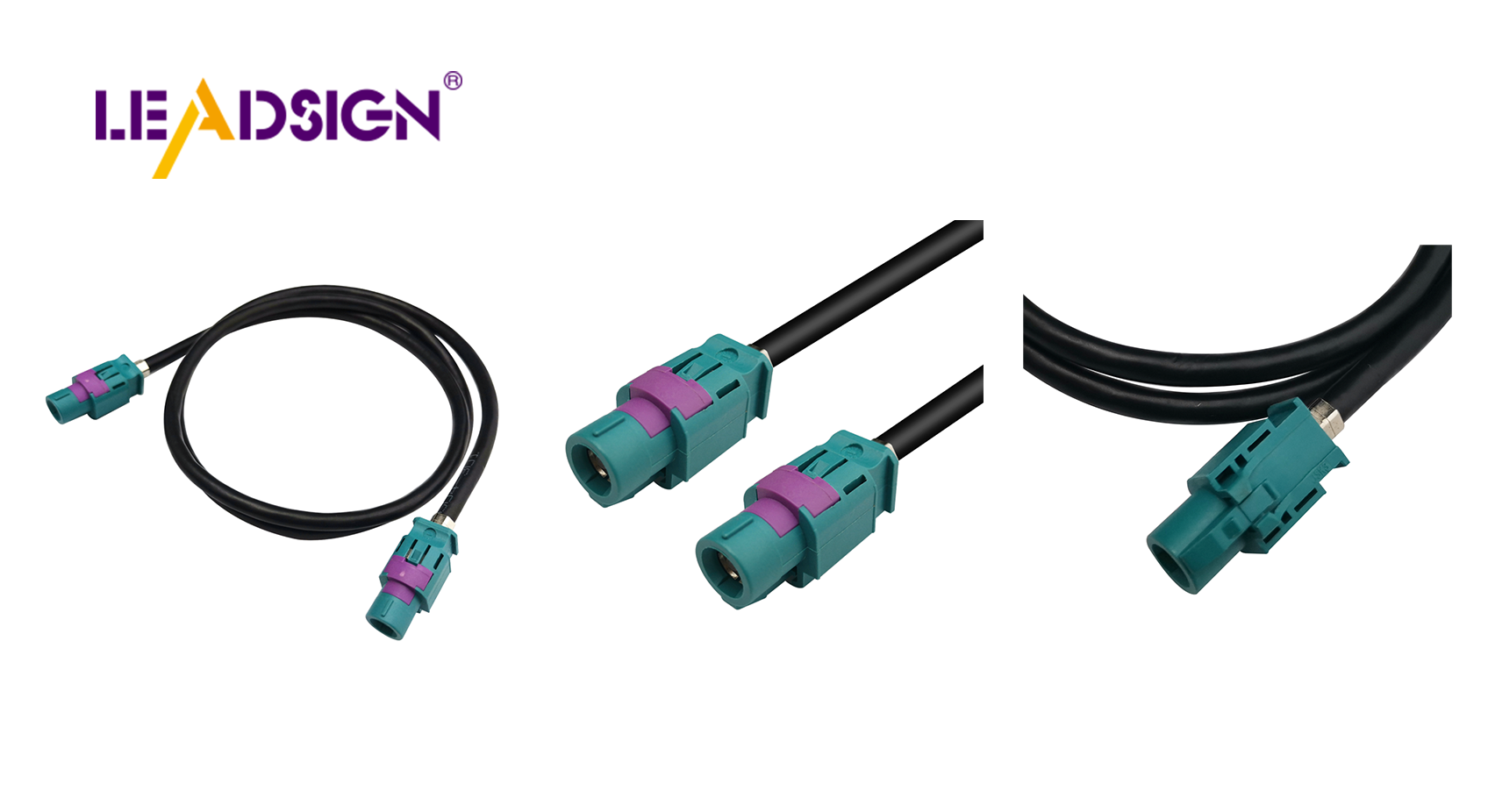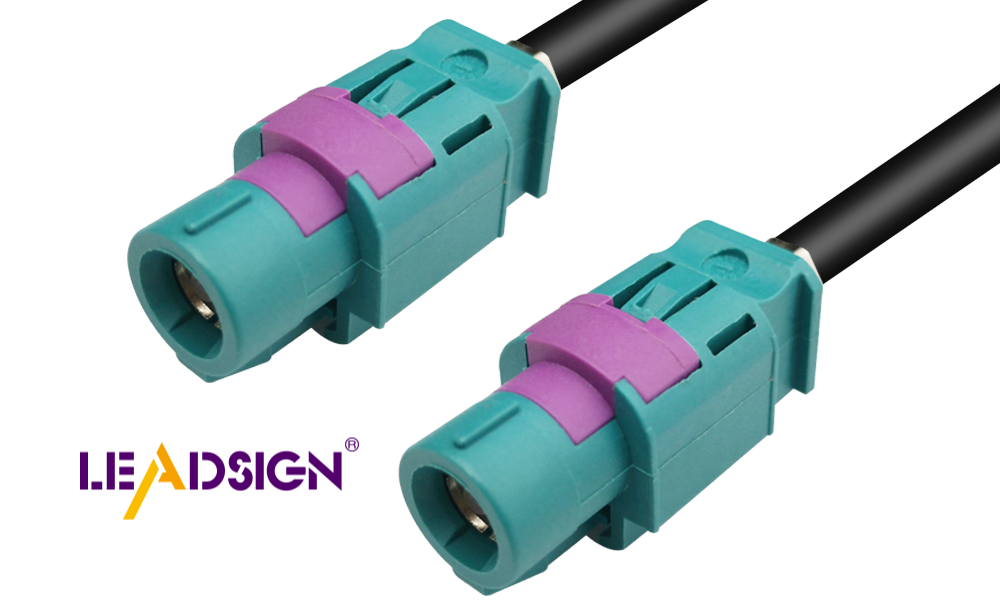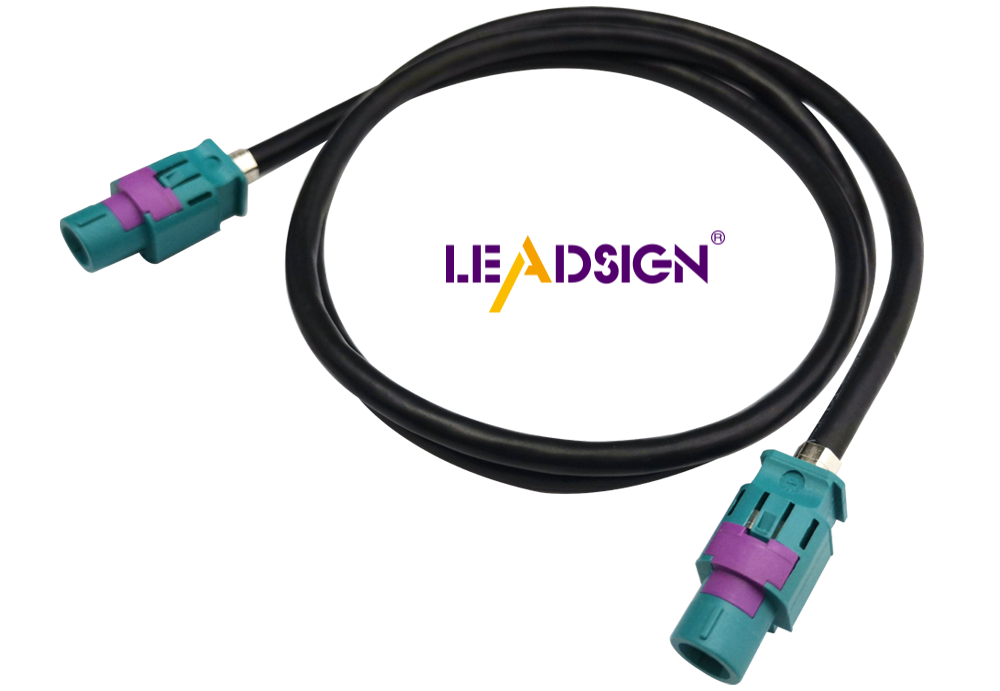Latest Innovations Shaping Vehicle Connectors for the Future

Vehicle connectors are important in today's vehicles. The need for electric and self-driving cars has grown. This has increased the demand for fast connectors. These parts help systems talk to each other easily. They support smart features like ADAS and car connectivity. Asia Pacific is the top market for these vehicle connectors. This is due to new technology and more complex cars.
Key Takeaways
Vehicle connectors are essential for modern cars, ensuring reliable power and data sharing for safety features like airbags and anti-lock brakes.
Innovations such as high-voltage connectors and IoT integration are transforming vehicle connectors, enabling faster data transfer and improved performance in electric and self-driving cars.
Lightweight and miniaturized designs of connectors not only save space and reduce energy consumption but also enhance the overall efficiency and reliability of automotive systems.
Understanding Vehicle Connectors
What Are Vehicle Connectors?
Vehicle connectors are important parts of modern cars. They link wires, cables, and circuits to share power and data. These connectors help car systems work safely and smoothly. They are used in systems like airbags and brakes. Locking features keep them secure, even in tough conditions. Common types include pin, blade, and bullet connectors. Each type is made for a specific job.
Key Components and Functions
Car connectors have terminals, housings, and seals. Terminals, like pins and tabs, carry electricity. Housings protect terminals and keep them aligned. Seals block water and dirt from causing problems. These parts work together to make strong electrical links. High-voltage connectors are key in electric cars. They deliver steady power to batteries and engines.
The main jobs of car connectors are:
Joining wires and cables for strong circuits.
Keeping connections secure with special locks.
Helping safety systems like ABS and airbags work.
Role in Automotive Electronics and Vehicle Electronics
Connectors are vital for car electronics to perform well. They connect systems like engines, lights, and infotainment devices. For example, engine connectors stop malfunctions by keeping power steady. In lights, they prevent flickering or failure. Sealed connectors protect outdoor parts from bad weather. As cars become smarter, connectors help with new tech in connected and self-driving vehicles.
Key Trends and Innovations in Automotive Connectors

Electrification and High-Voltage Automotive Connectors
Electric cars need high-voltage connectors for steady power. These connectors safely handle high voltage and current. Strong materials like composite alloys improve their performance. Plastic housings with shields make them safer to use. They also resist pressure and have low resistance, making them reliable.
Innovation Aspect | Description |
|---|---|
Electrification | High-voltage connectors help power electric vehicles. |
Pressure Resistance | Better designs keep them safe under high pressure. |
IoT Integration and Smart Vehicle Connectors
IoT has turned connectors into smart tools. These connectors help car systems talk to each other easily. They allow features like real-time checks and predictive repairs. Smart connectors send data faster, improving connected car systems. This matches the trend of software-based vehicles.
Lightweight and Miniaturized Designs
Smaller, lighter connectors are now common in cars. They save space, cut weight, and use less energy. Mini connectors work well even in tough conditions. They fit different wire sizes, making production easier. These designs boost car electronics and overall performance.
Benefit | Description |
|---|---|
Mini connectors work well in extreme conditions. | |
Versatility in Wire Size Range | Flexible designs fit many vehicle systems. |
Enhanced Flexibility | Lightweight designs save space and lower costs. |
Advanced Manufacturing and Modular Connector Designs
New methods like 3D printing make better connectors. These techniques allow faster and more custom production. Industry 4.0 ideas help make high-quality connectors with less waste. Modular designs make it easy to adjust connectors for different uses.
V2X Communication and 5G Integration
V2X means cars can share data with everything around them. 5G makes this faster and more reliable. Cars can talk to their surroundings instantly, improving safety. 5G connectors also help with repairs and advanced electronics, making cars smarter and safer.
5G V2X creates a network where cars see everything around them. This helps build new car systems and smarter vehicles.
Applications and Benefits of Advanced Vehicle Connectors

Making Cars Safer and More Reliable
Advanced connectors help keep car systems safe and reliable. They make sure electrical connections stay strong to avoid problems. For example, engine systems need secure links to work well. Airbags use these connectors to open quickly in crashes. Lights stay bright without flickering because of these strong connections. Systems like ABS and traction control also rely on steady power. This helps them work properly to keep people safe. By stopping loose connections, these connectors protect drivers and passengers.
Boosting Energy Use and Car Performance
Connectors help cars save energy and perform better, especially electric ones. They stop overheating during fast charging or heavy use. This keeps batteries and other parts working well. Using 48V systems lowers the strain on main batteries. It also speeds up charging and reduces wasted power. These improvements make electric cars last longer and work more efficiently.
Helping Smart and Self-Driving Cars
Smart and self-driving cars need fast connectors for data sharing. These connectors help systems like ADAS and connected car tech work. They handle data speeds from 3 to 24 Gbps. Higher-level self-driving cars use them for real-time sensor data. V2X communication uses connectors to link cars with roads and people. As cars become more software-based, better connectors will be needed.
Supporting Green and Sustainable Cars
Connectors also help make cars more eco-friendly. They allow electric cars to share power efficiently. Fast-charging connectors meet the need for quick charging stations. They also stop overheating, helping electric cars last longer. V2G systems let cars support the power grid and use green energy. Lightweight materials in connectors make cars more efficient, helping the planet.
Challenges and Future Outlook for Vehicle Connectors
Tackling Cybersecurity Issues in Car Connectors
As cars get smarter, cybersecurity risks also increase. Over-the-air updates are helpful but can be hacked. This can make cars unsafe. Smart cars connecting to things like charging stations face more risks. Hackers can target these systems and cause big problems.
Main risks include:
Telematics systems letting hackers into car networks.
Bluetooth and WiFi being used for sneaky attacks.
OBD-II ports giving direct access to car systems.
Fleet systems being hacked, affecting many cars at once.
V2X systems being used to mess with traffic signals.
To stop these risks, companies need strong encryption and secure updates.
Problems with Standardization and Compatibility
New car tech makes it hard to standardize connectors. Companies struggle to follow rules while creating new designs. Different countries have different rules, causing confusion.
To fix this, global standards are needed. This will help connect car systems easily everywhere. It will also make building connected car features simpler.
Balancing Cost, Quality, and Growth
Car makers must balance cost, quality, and growth in connector designs. Standard connectors lower costs by allowing mass production. They also make it easier to connect different devices. Using 48V systems cuts copper use, saving money. These systems also improve energy use and allow lighter wires.
Higher voltage improves how parts work, meeting customer needs. This balance keeps connectors affordable and high-performing.
Future Trends: AI, ADAS, and More
AI and ADAS will change how car connectors are made. Self-driving cars need fast data sharing. Infotainment systems need steady connections to work well. 5G helps cars share data instantly, which is key for smart cars.
Smaller connectors save space but still work well. AI helps design better connectors for modern cars. Electric cars need advanced connectors for smooth communication. These trends show how important connectors are for future car tech.
Vehicle connectors are key parts in modern car electronics. They help systems work together and support safety features like ADAS and anti-lock brakes. Fast connectors are important for electric and smart cars. They allow quick charging and energy-saving systems to work well.
These connectors make cars safer by keeping power steady. They stop important systems from losing connection. They also save energy by using power more efficiently. In electric cars, they help with fast charging and sharing power with the grid.
As car technology grows, connectors will improve connected car systems. They will handle fast data and support new tech for self-driving and eco-friendly cars.
FAQ
Why are vehicle connectors important in today's cars?
Vehicle connectors help systems share power and data reliably. They make safety features, entertainment, and smart car tech work properly.
How do better connectors help electric cars?
Better connectors save energy by stopping power waste. They allow quick charging and keep high-voltage systems steady in electric cars.
Why do cars need lightweight connectors?
Lightweight connectors make cars weigh less, saving fuel and boosting performance. They also free up space for smarter car designs.
See Also
Transforming Vehicle Connectivity With HFM Connectors Benefits
Fakra Connectors: Essential Components for Today's Vehicles
Boosting Data Transfer: Significance of High-Speed Connectors
Improving Automotive Data Flow With Advanced Connectors
Harnessing High-Speed FAKRA-Mini Connectors for Automotive Innovation

